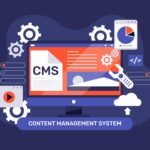The Future of Work: Harnessing AI for Remote Staffing Solutions
- Hanzla Ijaz
- remote staffing
- 0 Comments
|
Getting your Trinity Audio player ready...
|
The landscape of work has undergone a dramatic transformation in recent years, particularly with the shift towards remote environments. As organisations pivot to accommodate this change, they are increasingly leveraging digital solutions to optimise their workforce strategies. One of the most significant advancements in this realm is the application of artificial intelligence (AI) in remote staffing, which has emerged as a key driver of efficiency and effectiveness in the hiring process.
AI remote staffing tools have revolutionised how companies identify, recruit, and manage remote employees. These technologies enable organisations to automate various hiring processes, such as screening resumes, conducting initial interviews, and assessing candidate fit through advanced algorithms. This not only streamlines operations but also helps to reduce biases that can exist in traditional hiring methods.
Moreover, the relevance of AI in staffing extends beyond recruitment. Once candidates are hired, AI can assist in performance evaluation, employee engagement, and skill development. By analysing data from various sources, including employee output and feedback mechanisms, organisations can tailor their management strategies to ensure remote employees are supported and motivated. This is essential as the global workforce adapts to new norms of remote work, striking a balance between flexibility and productivity.
In this context, AI is not just an innovative tool; it is becoming an integral component of workplace infrastructure. By continually evolving to meet the needs of both employers and employees, AI stands at the forefront of shaping the future of remote staffing solutions. This foundation sets the stage for a deeper exploration of how these technologies are revolutionising the staffing industry, paving the way for more adaptable and resilient workforce management practices.
The Benefits of AI-Driven Remote Staffing
The incorporation of AI-driven remote staffing solutions brings several compelling advantages that are reshaping the workforce landscape. One of the primary benefits is the significant improvement in hiring efficiency. Traditional recruitment processes can be time-consuming and often lead to prolonged vacancies. However, by utilising AI, companies can automate numerous aspects of recruitment, enabling faster identification of suitable candidates. This efficiency not only shortens the hiring cycle but also allows HR teams to concentrate their efforts on strategic initiatives.
Another notable benefit is the enhancement of candidate matching through comprehensive data analysis. AI algorithms can analyse vast arrays of data from potential applicants, including skills, experiences, and cultural fit. This data-driven approach ensures that organisations receive high-quality matches, thereby increasing the likelihood of successful hires. For instance, businesses employing AI in their recruitment processes have reported higher rates of employee retention, underscoring the effectiveness of this technology in aligning talent with organisational needs.
Moreover, AI-driven remote staffing solutions contribute to reducing bias in hiring decisions. By relying on objective data rather than subjective judgment, AI minimises the influence of unconscious bias that can affect human recruiters. This leads to a more diverse and inclusive workforce, which is increasingly recognised as a key component of an organisation’s success. By fostering equitable hiring practices, companies can better harness the broad spectrum of talent available in the job market.
Finally, AI streamlines the onboarding process for new hires. Automated systems can provide personalized training resources and facilitate communication between new employees and their teams, enhancing engagement from day one. Real-world examples illustrate how companies are leveraging these AI solutions to not only improve efficiency but also create a more cohesive remote working environment. In summary, the integration of AI in remote staffing not only optimises hiring procedures but also fosters a more equitable and engaging workplace culture.
AI Tools and Technologies Shaping Remote Staffing
The landscape of remote staffing is being fundamentally transformed by a variety of advanced AI tools and technologies. These innovations not only enhance efficiency but also improve the accuracy of the staffing process, enabling organisations to find the right talent from a global pool. Among these tools, Applicant Tracking Systems (ATS) have become indispensable. ATS software automates the collection and sorting of resumes, allowing employers to streamline the initial stages of the hiring process effectively. By filtering candidates based on specific criteria, ATS saves significant time, ensuring only the most qualified candidates make it to the next stage.
AI chatbots are another noteworthy development in the realm of remote staffing. These intelligent virtual assistants can handle initial screenings, thus reducing the workload on human recruiters. They engage candidates in real-time conversations, asking predetermined questions and evaluating responses to provide an initial assessment of applicant suitability. By deploying chatbots, companies can enhance the candidate experience while filtering out less qualified candidates quickly.
Furthermore, machine learning algorithms play a critical role in skill assessments. These algorithms analyse vast datasets to identify patterns and correlations that predict an applicant’s future performance. By evaluating historical data and skills that have led to success in similar roles, machine learning offers actionable insights that traditional methods may overlook. This technology contributes significantly to identifying talent that is not only qualified but also a good cultural fit for the organisation.
Lastly, predictive analytics is reshaping talent management strategies. By leveraging data trends, organisations can forecast staffing needs, assess employee performance, and identify potential turnover. Predictive analytics equips managers with the tools to make informed decisions about talent allocation and retention, ensuring that businesses remain agile in a constantly evolving workforce. As these AI tools continue to evolve, their integration into remote staffing will undoubtedly lead to more effective and strategic hiring practices.
Challenges and Considerations in AI Remote Staffing
As organisations explore the implementation of AI remote staffing solutions, several challenges and considerations must be acknowledged to ensure effective integration. One notable issue is the risk of over-reliance on algorithms. While AI systems can enhance efficiency and streamline processes, excessive dependence on technology may lead to a disregard for human judgment, potentially resulting in suboptimal hiring decisions. It is crucial for employers to strike a balance between AI capabilities and human insights to maintain a comprehensive recruitment process.
Data privacy concerns also present significant challenges in the realm of AI remote staffing. Organisations must collect and analyse vast amounts of personal information, which raises questions about the security of this data and the ethical implications of its usage. Employers are tasked with adhering to strict data protection regulations and must implement robust measures to safeguard candidate information. This ensures that sensitive data is handled responsibly, fostering trust between both employees and employers.
Furthermore, the importance of maintaining human oversight cannot be overstated. While AI can assist in identifying potential candidates and sorting applications, human intervention remains vital in the final decision-making process. Recruiters can provide context and understanding that AI cannot replicate, making their role essential for evaluating cultural fit and individual values. This collaboration between technology and human expertise is critical for achieving successful staffing outcomes.
Lastly, the potential for perpetuating biases in AI systems poses a significant challenge in remote staffing. If not carefully monitored, AI algorithms may reflect existing prejudices found in historical hiring data, which can disadvantage certain groups of applicants. To mitigate this risk, organisations must prioritise unbiased data and invest in regular audits of their AI systems. By addressing these challenges, businesses can harness the power of AI remote staffing while promoting an equitable and efficient hiring process.
The Role of Human Resource Professionals in AI Staffing
As the landscape of employment continues to evolve with the integration of technology, human resource (HR) professionals find themselves at the forefront of this transformation. In the context of AI remote staffing, HR’s role is significantly changing, as these professionals must adapt to tools that amplify their capabilities while also preserving the essential human aspect of recruitment. The utilisation of AI-driven platforms can facilitate better decision-making processes, ensuring that hiring practices are not only efficient but also aligned with the organisation’s values and culture.
AI tools can analyse vast amounts of data, allowing HR teams to identify suitable candidates based on skills, experience, and predicted job performance, thus enhancing the overall recruitment strategy. By automating repetitive tasks such as resume screening and interview scheduling, HR professionals can allocate more time to cultivating relationships with potential hires, ultimately prioritizing human connection in an increasingly digitized environment. This balance between leveraging AI for efficiency and maintaining a personal touch is crucial to effective recruitment.
To effectively utilise AI remote staffing solutions, it is essential for HR professionals to engage in upskilling initiatives. This includes developing a strong understanding of AI technologies and their implications for the workforce. By investing in training, HR teams can better assess and implement AI systems that enhance their operations. Moreover, fostering a culture of adaptation and learning within HR departments will empower these professionals to lead their organisations through the evolving employment landscape.
In summary, the integration of AI into remote staffing presents both opportunities and challenges for HR professionals. By embracing AI tools, continuing education, and focusing on personal connections, HR can navigate this new era of recruitment successfully while ensuring that human elements remain central to their practices.
Future Trends in AI Remote Staffing
The landscape of work is undergoing a significant transformation as organisations increasingly embrace AI remote staffing solutions. One of the most notable emerging trends is the continuous advancement of AI technologies. As AI becomes more sophisticated, it will enable companies to streamline their recruitment processes, reducing the time and resources spent on candidate selection. Algorithms that analyse vast amounts of data will help identify the best candidates, ensuring a higher quality of hire.
Moreover, evolving candidate expectations will play a pivotal role in shaping the future of remote staffing. Today’s workforce is seeking flexibility, autonomy, and opportunities for professional growth. As AI remote staffing tools provide companies the ability to manage remote teams efficiently, organisations will need to adapt their culture to meet these expectations. The integration of AI in talent management will not only facilitate remote workflows but also enhance employee engagement by promoting personalized career development plans driven by data insights.
Another significant trend is the shift in workforce dynamics influenced by AI. As organisations increasingly adopt remote staffing, a more diverse and geographically dispersed workforce is likely to emerge. This evolution will require companies to foster inclusivity and cultural sensitivity among team members, ensuring collaboration across various locations. Furthermore, AI technologies will facilitate real-time communication and collaboration, thereby bridging the gap created by physical distances.
To prepare for these trends, organisations must invest in AI-driven tools that support remote staffing strategies while upskilling their workforce. Training programs focused on AI integration will empower employees to leverage these technologies effectively. Emphasizing adaptability and agility in the workplace will enable companies to stay competitive in attracting and retaining top talent in an increasingly remote job market.
Case Studies of Successful AI Remote Staffing Implementations
As organisations increasingly embrace AI remote staffing solutions, various companies have successfully integrated these technologies to enhance their hiring processes and workforce management. This section explores notable case studies, highlighting the challenges faced, the strategies implemented, and the lessons learned.
One prominent example is Company A, a leading tech firm that struggled with long recruitment cycles and inefficiencies in candidate screening. To tackle these challenges, the organisation deployed AI-driven tools to automate the initial screening process, allowing human resources teams to focus on more strategic tasks. By integrating machine learning algorithms, the company was able to analyse candidates’ resumes and rank them based on qualifications and cultural fit. As a result, the time to hire decreased by 30%, while the quality of hires significantly improved. The primary lesson learned here is that AI can effectively streamline staffing processes without compromising the quality of recruitment.
Additionally, Company B, a global marketing agency, faced difficulties managing a diverse remote workforce. With team members scattered across various countries, communication and project management became increasingly complex. To address this issue, they implemented an AI-powered remote staffing platform that facilitated real-time collaboration and resource allocation based on employee expertise. This AI solution allowed the agency to optimise deployment of talent and maintain project momentum seamlessly. The outcome demonstrated that leveraging AI for remote staffing not only enhances productivity but also fosters a more cohesive working environment.
Finally, Company C, a healthcare provider, sought to address staff shortages and improve patient care. By utilising AI remote staffing solutions, they were able to tap into a global talent pool, enabling them to fill critical roles promptly. The AI system analysed workload patterns and predicted staffing needs, allowing for proactive hiring strategies. This case exhibited the potential of AI to create a more agile staffing model, thereby enhancing operational efficiency in critical sectors.
These case studies illustrate the diverse applications of AI remote staffing in various industries. Organisations aiming to adopt similar technologies can draw valuable insights and strategies from these success stories to optimise their staffing practices and overcome common challenges.
Best Practices for Implementing AI in Remote Staffing
As organisations increasingly turn to AI remote staffing solutions, adopting best practices becomes crucial for maximising the potential of these technologies. The first step in this process is selecting the right AI tools tailored to organisational needs. It is essential to evaluate various platforms, considering features such as integration capabilities, user-friendliness, and scalability. Focus on tools that offer robust remote collaboration features to support diverse team dynamics and facilitate a streamlined hiring process.
Training staff to effectively use AI technologies is another critical aspect of implementation. Employees must understand how to leverage these tools to enhance their productivity and decision-making. Training sessions should encompass not just the technical aspects of the AI tools but also address the importance of fostering collaboration within remote teams. Encouraging employees to provide feedback during training can further refine the implementation process, ensuring the tools meet user needs.
Data security is a paramount consideration when establishing AI-driven remote staffing solutions. Organisations should prioritise compliance with data protection regulations and invest in technologies designed to safeguard sensitive information. Measures such as encryption, regular security audits, and employee training on data privacy best practices can help mitigate potential risks associated with remote staffing.
Maintaining transparency with candidates throughout the hiring process is crucial. Organisations should communicate how AI is utilised in the selection process, as this enhances candidate trust and promotes a positive user experience. Candidates should also be informed about data handling practices, which can further alleviate concerns regarding privacy and security.
Finally, continuously evaluating AI performance is essential to ensure optimal efficiency. Regular assessments can identify areas for improvement and help organisations adapt to evolving market demands. By implementing these best practices, organisations can develop a seamless and effective AI remote staffing strategy that not only meets their current needs but also adapts to future challenges.
Conclusion: Embracing the AI Revolution in Remote Staffing
The rapid advancement of artificial intelligence is reshaping various aspects of business operations, particularly in remote staffing solutions. As discussed throughout this blog, the integration of AI technology presents organisations with strategic advantages that can significantly enhance their hiring processes, workforce management, and overall productivity. By utilising AI remote staffing tools, businesses can streamline recruitment, optimise matching candidates to roles, and efficiently manage remote teams, thereby responding dynamically to market demands.
However, it is crucial to recognise that while AI offers remarkable capabilities, there remains a fundamental need to balance technological advancements with the human elements of staffing. Employees are a company’s most valuable asset, and their emotional intelligence, creativity, and interpersonal skills are irreplaceable. Therefore, organisations must focus on leveraging AI to augment human capabilities rather than replace them. A hybrid model that combines AI efficiency with human ingenuity can foster a more resilient and adaptive workforce.
To ensure that companies remain competitive in this evolving landscape, investing in AI-driven remote staffing solutions is essential. The ability to harness the power of AI can help businesses anticipate trends, adapt to changes faster, and make data-driven decisions that pave the way for sustainable growth. Organisations committed to embracing these innovations will not only optimise their operational efficiencies but also empower their teams to excel in an ever-changing work environment.
Conclusion
In conclusion, as the future of work unfolds, embracing the AI revolution in remote staffing will be pivotal. Companies that prioritise innovation, effectively integrate AI with human talent, and encourage continuous learning will undoubtedly position themselves at the forefront of their industries, ready to navigate the challenges and opportunities that lie ahead.




